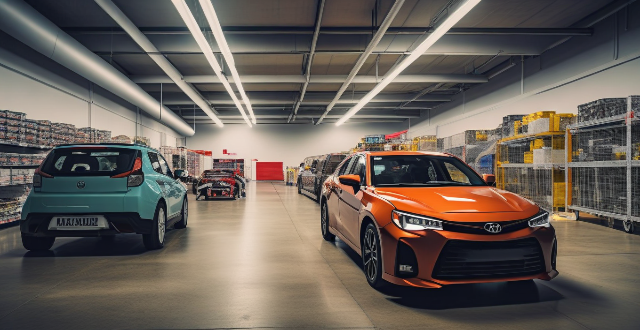Fast charging car chargers have raised safety concerns due to risks such as overheating, battery degradation, and electrical hazards. To ensure safe use, it is recommended to use approved chargers, follow manufacturer's guidelines, monitor charging temperatures, avoid overcharging, inspect wiring and connections, use a surge protector, and store the charger properly. By following these tips, the risks associated with fast charging can be minimized.

Are Fast Charging Car Chargers Safe to Use?
Introduction
Fast charging car chargers have become increasingly popular in recent years due to their ability to quickly recharge electric vehicles (EVs). However, concerns about their safety have also arisen. In this article, we will explore the safety aspects of fast charging car chargers and provide some tips on how to use them safely.
Safety Concerns
Overheating
One of the main safety concerns with fast charging is the risk of overheating. When a car is charged at a high rate, it generates heat that needs to be dissipated effectively. If the cooling system is not adequate, the battery cells can overheat, leading to potential damage or even fire hazards.
Battery Degradation
Another concern is the impact of fast charging on battery lifespan. The rapid influx of energy can cause stress on the battery cells, leading to faster degradation and reduced overall lifespan. This can result in decreased range and performance over time.
Electrical Hazards
Fast charging involves high voltages and currents, which can pose electrical hazards if not handled properly. Faulty wiring, improper connections, or damaged equipment can lead to short circuits, sparks, or even explosions.
Tips for Safe Use
To ensure the safe use of fast charging car chargers, follow these tips:
1. Use Approved Chargers: Always use chargers that are approved by your vehicle manufacturer or a reputable certification body. These chargers have undergone rigorous testing and meet specific safety standards.
2. Follow Manufacturer's Guidelines: Read and follow the manufacturer's instructions for using the charger and maintaining your vehicle's battery system. This includes recommendations for maximum charging rates and temperature limits.
3. Monitor Charging Temperatures: Keep an eye on the temperature of your vehicle's battery pack during charging. If it becomes too hot, stop charging and allow it to cool down before continuing.
4. Avoid Overcharging: Do not leave your vehicle plugged in after it has reached a full charge. Overcharging can cause additional stress on the battery cells and increase the risk of overheating.
5. Inspect Wiring and Connections: Regularly inspect the wiring and connections between your vehicle and the charger for any signs of damage or wear. If you notice any issues, have them repaired by a qualified technician before using the charger again.
6. Use a Surge Protector: Consider using a surge protector when connecting your charger to a power source. This can help protect against electrical surges that could damage your vehicle's charging system or other electronic components.
7. Store Properly: When not in use, store your charger in a dry and cool place away from direct sunlight and extreme temperatures. Avoid exposing it to moisture or water as this can damage the internal components and increase the risk of electrical faults.
Conclusion
In conclusion, fast charging car chargers can be safe to use as long as they are used correctly and in accordance with manufacturer guidelines. By following the tips outlined above, you can minimize the risks associated with fast charging and enjoy the benefits of quicker refueling times for your electric vehicle.